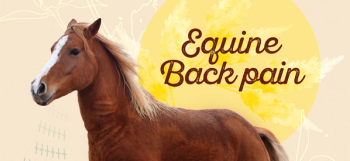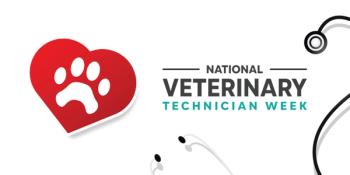
Veterinarians: Protecting Pets and People from Abuse
A recent review article links animal abuse and human violence, emphasizing the veterinarian’s important role in preventing and reducing both.
A Research in Veterinary Science review article recently summarized study results reporting on the connection between animal abuse and interpersonal violence—dubbed “The Link.” Research on “The Link” first began in the 1960s. Since then, animal protection groups and law enforcement have supported continued research in this area.
According to a previous study, some states consider veterinarians to be the only health care professionals qualified to recognize both animal and human abuse. However, the veterinarian’s role in addressing “The Link” has not yet been widely recognized or accepted.
Methodology
Through a literature review, the authors identified 96 original research articles, published between 1960 and 2017, on “The Link” and the veterinarian’s role in addressing animal and human violence. Articles were grouped into 3 categories:
- Study topic
- Study location
- Publication area
Results
Most articles were published in the human and social sciences, with only 7% published in veterinary medicine. This highlights “the need to encourage interdisciplinary work between human sciences, social sciences, and veterinary medicine,” the authors wrote.
Nearly 80% of the articles were published in North America. No studies from South America or Africa were published, indicating the need to conduct research and consider cultural attitudes toward animals in these regions.
Nearly all studies identified “The Link.” However, fewer than half used a comparator group absent of violence or psychiatric disorder characteristics, a common limitation in studies about this topic.
Study topics were grouped into 4 subcategories.
Animal Abuse and Domestic Violence
Among the studies reporting an association between animal abuse and domestic violence against women, the actual rate of animal abuse could not be determined because domestic violence services do not routinely assess pet abuse. Notably, female domestic violence victims may delay going to a shelter for fear of their pet being abused. Studies reported that dogs and cats are the most commonly abused pets in homes with domestic violence.
Risk Factors for Development of Childhood Animal Abuse
Studies identified several factors increasing the risk of childhood animal abuse:
- Presence of behavioral disorders
- Victim of sexual or physical abuse
- Exposure to animal abuse or other violence
One study reported that children who witness domestic violence have decreased affective empathy, decreasing their sensitivity to animal suffering.
Animal Abuse and Prediction of Criminal Behavior
Studies seeking a link between animal abuse and future criminal behavior often produced conflicting results because of small sample sizes and variable definitions of animal abuse. However, 1 study reported that animal abuse can desensitize the abuser to the effects of violence. According to another study’s findings, “animal abuse should be considered as a step toward delinquency,” the authors wrote.
Several motivations for animal abuse were identified, including anger, fun, and the desire to control.
Veterinarians’ Role in “The Link”
Several studies highlighted why veterinarians play an integral role in “The Link.” For example, veterinarians:
- Can identify animal abuse
- Work to preserve the human—animal bond
- Have contact with domestic violence victims
However, veterinarians may not file animal abuse complaints, primarily because of a lack of training to identify animal abuse. Several studies emphasized the importance of additional veterinary training in both animal abuse and human violence to increase awareness of “The Link.”
Other studies reported that domestic violence victims and other professionals may not recognize the veterinarian’s role in reducing human abuse, indicating the need for “cross-sectorial work that promotes the welfare of human and animal victims of abuse,” the authors wrote.
Conclusions
“The Link” reported in these studies underlies pets’ vulnerability to abuse at home. Multidisciplinary collaboration involving the veterinary community can help protect both animals and people from violence.
Dr. JoAnna Pendergrass received her Doctor of Veterinary Medicine degree from the Virginia-Maryland College of Veterinary Medicine. Following veterinary school, she completed a postdoctoral fellowship at Emory University’s Yerkes National Primate Research Center. Dr. Pendergrass is the founder and owner of JPen Communications, a medical communications company.
Newsletter
From exam room tips to practice management insights, get trusted veterinary news delivered straight to your inbox—subscribe to dvm360.






